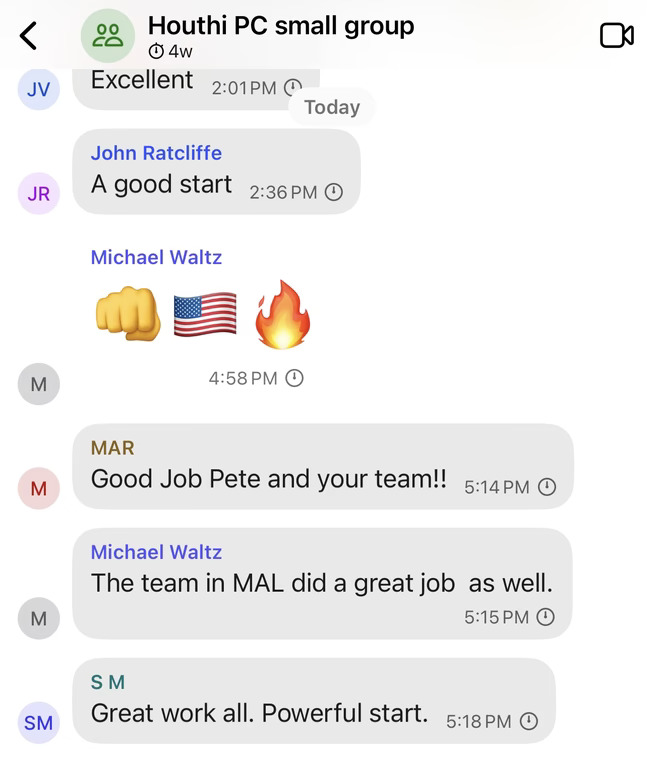When the U.S. launched an attack on Houthi members across Yemen on March 15, one person, who wasn’t part of the country’s national security team and should not have known, knew beforehand.
It was the editor-in-chief of a popular news outlet and he had been mistakenly added to a group chat discussing the attacks in an incident that was called a “historic mishandling” of national security and military information.
He published an article about the incident
Jeffrey Goldberg, editor-in-chief of The Atlantic, told the world about how he was mistakenly added to a Signal group chat discussing U.S. military attacks on Yemen in an article published yesterday Monday March 24.
The article is titled “The Trump Administration Accidently Texted Me Its War Plans” and while that sounds untrue, he watched the bombs fall two hours after it was said to happen on the group chat.
It started on March 11
Goldberg writes that he connected with Donald Trump’s national security adviser Michael Waltz on March 11 before being added to a group chat named ‘Houthi PC small group’ a few days later.
Importantly, he also says that he didn’t think it was actually Michael Waltz himself sending him a connection, nor that the group chat was the real deal. He believed it was a gimmick made to “entrap” him and to spread disinformation.
This text messages commenced on Signal
Goldberg explained that text messages started coming in on the group chat on Thursday March 13. The chat had 18 other members, including U.S. vice-president, JD Vance, the director of national intelligence, Tulsi Gabbard, the defence secretary Pete Hegseth, and the secretary of state, Marco Rubio, among others.
This was on Signal, an encrypted messaging app for conversations that require higher security.
Still, Goldberg didn’t think the chat was real

Despite all the big names he saw on the screen, Goldberg said he still didn’t think the group chat was the real deal.
At one point the account named ‘JD Vance’ said he was busy in Michigan, with the actual vice president having been in Michigan that day. The account also went on to state that the attack on Yemen was “necessary” for US trade.
Goldberg realized it was real when the attacks started
The man who was put in the group chat by accident, and who, up to this point still didn’t fully believe it was real, only realized the truth when two hours after US defence secretary Pete Hegseth detailed forthcoming strikes on Yemen, he watched it happen on the news.
This triggered outrage across the country
After Goldberg published his article relaying the events of the accidental security breach, the story caused a bipartisan outrage across the country.
According to The Guardian, the minority leader, Chuck Schumer, called the catastrophic mistake “one of the most stunning breaches of military intelligence I have read about in a very, very long time.”
Many were disappointed by the mistake
The Delaware senator, Chris Coons, also wrote on X/Twitter, “Every single one of the government officials on this text chain have now committed a crime – even if accidentally. We can’t trust anyone in this dangerous administration to keep Americans safe.”
New York representative, Pat Ryan, also threatened to launch his own investigation into the matter “IMMEDIATELY” if House Republicans don’t act on it. He called the incident “Fubar,” which is an acronym that stands for ‘f**ked up beyond all recognition’.
Outlets are calling it a ‘historic mishandling’ of information
News outlets are equally upset with the situation, with The Guardian calling it a “historic mishandling of national security information” and a “potentially illegal communication chain in which sensitive military plans” were shared. CNN also reported it as “indifference to the rule of law”.



















































